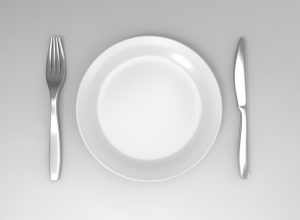Is Time-Restricted Eating Right For You?
Author: Dr. Stephen Chaney
 Time-restricted eating is the latest fad. If you read Dr. Strangeloves’ blogs, he or she will tell you that eating for 8-10 hours and fasting the rest of the day will change your metabolism. They tell you that:
Time-restricted eating is the latest fad. If you read Dr. Strangeloves’ blogs, he or she will tell you that eating for 8-10 hours and fasting the rest of the day will change your metabolism. They tell you that:
- You don’t need to change what you eat.
- You don’t have to restrict calories.
- You don’t have to restrict fats or carbs.
- You will feel fuller and naturally eat less.
- The pounds will just drop away magically.
And you will have benefits like:
- Better blood sugar control.
- Lower levels of heart-unhealthy lipids like LDL and triglycerides.
- Enhanced cellular repair, which might help you live longer.
Are these claims true? Is there something special about time-restricted eating, or is it simply another way to cut calories?
Two recent studies (EA Thomas et al, Obesity; 30: 1027-1038, 2022) and (D Liu et al, New England Journal of Medicine, 386: 1495-1505, 2023) answered these questions by cutting calories to the same extent for people following a time-restricted eating pattern and people who had no restrictions on when they ate.
How Were These Studies Done?
 Study 1: The authors enrolled 81 adults aged 18 to 50 years (average = 38 years, 69% female) with BMIs of 27 to 45 (overweight to morbidly obese).
Study 1: The authors enrolled 81 adults aged 18 to 50 years (average = 38 years, 69% female) with BMIs of 27 to 45 (overweight to morbidly obese).
The study lasted 39 weeks with measurements taken at baseline, 12 weeks, and 39 weeks.
The participants were divided into two groups:
- A time-restricted eating group that was advised to restrict their eating to start eating within 3 hours of waking and restrict their eating to 10 hours.
- A calorie restricted group that was given no time limitations on when they could eat.
Both groups were:
- given a personalized calorie goal which represented a 35% caloric restriction based on measurements of their resting energy expenditure.
- enrolled in a 39-week, group-based, comprehensive weight-loss program. Groups were taught by registered dietitians and met weekly through the first 12 weeks, and monthly between weeks 13 and 39.
Study 2: The authors enrolled 139 adults 18 to 75 years (average age = 32, 64% female) with BMIs of 28 to 45. The study lasted 12 months.
The participants were divided into two groups:
- A time-restricted eating group that was advised to restrict their eating to between 8 AM and 4 PM (an 8-hour window) each day.
- A calorie restricted group that was given no time limitations on when they could eat.
Both groups:
- Were told to reduce calories by 25% which represented a 1500-1800 calorie/day diet for men and a 1200-1500 calorie/day diet for women.
- Received dietary information booklets that provided portion advice and sample menus.
- Were required to write in a daily dietary log, photograph the food they ate, and note the time they ate it using a mobile app.
- Received follow up phone calls or app messages twice per week and met with trained health coaches every two weeks.
Is Time Restricted Eating Better Than Other Diets?
 Here are the results of the two studies.
Here are the results of the two studies.
Study 1: There was no difference between the time-restricted group and the group who were just told to cut calories at either 12 or 39 weeks for:
- Weight loss.
- Body composition (fat loss and lean muscle mass loss).
- Appetite and eating behaviors.
- HDL cholesterol, LDL cholesterol, total cholesterol, and HbA1c (a measure of blood sugar control).
The authors concluded two things:
- “Time-restricted eating with caloric restriction was found to be an acceptable dietary strategy, resulting in similar levels of adherence and weight loss compared to caloric restriction alone.”
2) “The addition of behavioral support and caloric restriction to a time-restricted eating intervention results in a clinically significant weight loss, a reduction in caloric input, and an improvement in diet quality.”
Study 2: There was no difference between the time-restricted group and the group who were just told to cut calories at 12 months for:
- Weight loss, BMI, and waist circumference.
- Body composition (fat loss and lean muscle mass loss).
- Appetite and eating behaviors.
- Blood pressure, HDL cholesterol, LDL cholesterol, total cholesterol, fasting blood sugar levels, and several measures of blood sugar control.
The authors concluded, “Among patients with obesity, a regimen of time-restricted eating was not more beneficial with regard to reduction in body weight, body fat, or metabolic risk factors than daily caloric restriction.”
Is Time-Restricted Eating Right For You?
 The take-home lessons are the same for both studies.
The take-home lessons are the same for both studies.
- You can forget the metabolic mumbo-jumbo of the Dr. Strangeloves of our world. When you restrict calories to the same extent, time-restricted eating is no more successful and no healthier than any other diet.”
2) Like any other diet, time-restricted eating works best when you focus on eating healthy foods and reducing your caloric intake.
So, what does this mean for you? I have two thoughts:
1) If you find it easier to cut calories by restricting the time you eat, then time-restricted eating is right for you. If not, choose a healthy, reduced calorie diet that best fits your food preferences and lifestyle.
2) Time-restricted eating works best when you are in complete control of when and what you eat. They don’t work as well for travel, holidays with friends and family, and other social occasions. If your lifestyle is such that you are often not in control of when and what you eat, you might want to choose a more flexible diet.
The Bottom Line
Time-restricted eating is the latest fad. If you read Dr. Strangeloves’ blogs, he or she will tell you that eating for 8-10 hours and fasting the rest of the day will change your metabolism, the weight will fall away effortlessly, and your health will be better.
But is this true? Two recent studies tested the hypothesis that time-restricted eating offers a special advantage by cutting calories to the same extent for people following a time-restricted eating pattern and people who had no restrictions on when they ate.
Both studies found there was no difference between the time-restricted group and the group who were just told to cut calories for:
- Weight loss.
- Body composition (fat loss and lean muscle mass loss).
- Appetite and eating behaviors.
- HDL cholesterol, LDL cholesterol, total cholesterol, and HbA1c (a measure of blood sugar control).
The take-home lessons are the same for both studies.
- You can forget the metabolic mumbo-jumbo of the Dr. Strangeloves of our world. When you restrict calories to the same extent, time-restricted eating is no more successful and no healthier than any other diet.”
2) Like any other diet, time-restricted eating works best when you focus on eating healthy foods and reducing your caloric intake.
For more information on this study and a discussion of whether time-restricted eating might be right for you, read the article above.
These statements have not been evaluated by the Food and Drug Administration. This information is not intended to diagnose, treat, cure, or prevent any disease.
___________________________________________________________________________
My posts and “Health Tips From the Professor” articles carefully avoid claims about any brand of supplement or manufacturer of supplements. However, I am often asked by representatives of supplement companies if they can share them with their customers.
My answer is, “Yes, as long as you share only the article without any additions or alterations. In particular, you should avoid adding any mention of your company or your company’s products. If you were to do that, you could be making what the FTC and FDA consider a “misleading health claim” that could result in legal action against you and the company you represent.
For more detail about FTC regulations for health claims, see this link.
https://www.ftc.gov/business-guidance/resources/health-products-compliance-guidance




